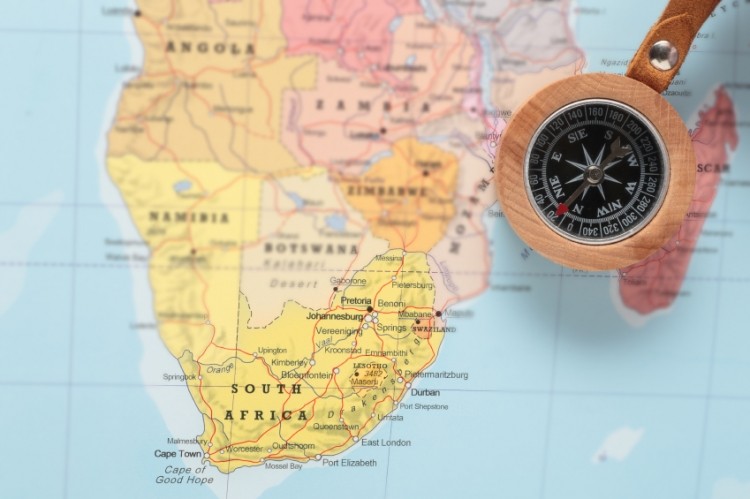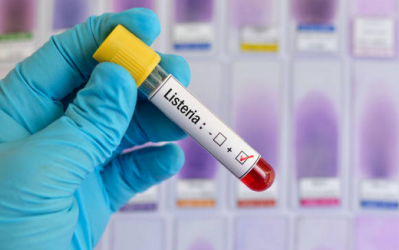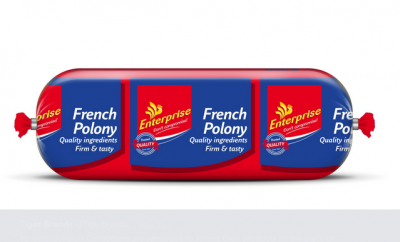WHO warns against trade ban after South African Listeria source identified

Listeria monocytogenes was isolated from polony made by Enterprise and Rainbow. The outbreak strain type (ST6) was found at the Enterprise factory in Polokwane.
WHO said recalls should be limited to implicated items from Enterprise (a division of Tiger Brands) and Rainbow (a division of RCL Foods) and should not involve other South African products as there is no ban on trade in the region.
“WHO does not currently recommend any trade related measures in relation to the current outbreak of listeriosis in South Africa, other than the recall of products identified as sources of infection,” it said.
“The recall process should involve the products going back to the retailer and then back to the manufacturer for proper disposal. Disposal should be done correctly and be monitored independently.
“Sharing of the bacterial sequence types with other laboratories is necessary...since every country would like to know the origins of the L. monocytogenes and from which product.”
WHO: Outbreak is a wake-up call
A total of 978 cases have been reported since the start of 2017 and 183 people have died, according to the National Institute for Communicable Diseases (NICD).
Contaminated ready-to-eat meat products may have been exported to two West African countries and 14 members of the South African Development Community (SADC).
WHO’s Health Emergencies programme, the Global Outbreak alert and Response Network (GOARN) and the International Food Safety Authorities Network (INFOSAN) are working with the 16 countries to improve ability to prepare for, detect and respond to potential outbreaks.
“This outbreak is a wake-up call for countries in the region to strengthen their national food safety and disease surveillance systems,” said Dr Matshidiso Moeti, WHO regional director for Africa.
WHO said most countries are not aware of listeriosis and some report zero cases, possibly because it is not a notifiable disease condition and is not being tested for.
Lack of clarity around suspension of imports
Southern African countries, including Botswana, Lesotho, Malawi, Mozambique, Namibia, Seychelles, Swaziland, Zambia and Zimbabwe suspended processed meat imports from South Africa following confirmation of the outbreak source.
It is not clear when they will lift suspension on the imports from the largest regional exporter of such products. Some notices do not explicitly state whether all processed meat products are banned or only those produced by Enterprise.
The countries accounted for about 75% of the South African prepared or preserved meat exports in 2017, according to the Global Trade Atlas (GTA).
Namibia confirmed one case of listeriosis in a 41-year-old man admitted to hospital in March. Work is ongoing to determine whether it is connected to the outbreak in South Africa.
Preliminary investigation indicated he consumed meat products (Viennas) purchased from a butchery in Tsumeb two weeks prior to onset of illness. His wife and two children who ate the same food are being examined.
A SADC Health Ministers meeting on listeriosis preparedness and response noted potential implications of the outbreak in the region in terms of public health, agriculture and trade and the need for regional, national and local multi-sectoral actions to mitigate it.
RCL Foods results do not change fact Listeria was found
RCL Foods said it has independent test results from an unnamed French lab showing the Wolwehoek Polony plant is clear of the Listeria ST6 outbreak strain. Rainbow polony products from this plant were recalled and the site was temporarily closed.
However, Dr Aaron Motsoaledi, Minister of Health, hit back at the claims.
“We agree with RCL Foods that the French laboratory they used for whole genome sequencing of L. monocytogenes isolates recovered from their Wolwehoek production facility is a reputable internationally recognised laboratory. This much was confirmed by WHO,” he said.
“But, this is not the point. The point is that L. monocytogenes was recovered from the RCL Foods Wolwehoek plant… The results shared by RCL Foods do not, in anyway, change the fact that Listeria was found in the RCL Foods Wolwehoek production facility, from several areas of the production facility, including post-production areas which are a risk for product contamination.
“We further clarify that for the RCL Foods Wolwehoek production facility in Sasolburg, we only have results of culture so far and that 14% (28/201) of the environmental samples tested positive for L. monocytogenes. We are awaiting whole genome sequencing results which will be available early next week.
“Although 92% of the L. monocytogenes isolates recovered from patients since January 2017 are ST6, we have identified at least 19 other sequence types of L. monocytogenes that have also caused sporadic disease in patients – but these non-ST6 cases have not been linked to any specific contaminated foods as yet.”
ST6 confirmed at Tiger Brands plant
Tiger Brands said independent lab testing confirmed presence of L. monocytogenes strain type 6 in the plant environment at the Enterprise Foods Factory in Polokwane. Listeria ST6 was also detected on the outer casing of two samples.
The Polokwane and Germiston factories remain closed and all Enterprise RTE meat products have been recalled and are no longer on sale.
Tiger Brands also discovered Listeria at the Pretoria meat processing factory, results have been sent for whole genome sequencing to determine whether there are ST6. The firm has closed the plant and recalled all Snax products made there.
The three sites are the primary recipients of production at the Clayville abattoir where operations will be wound down and suspended completely at the end of March.
Lawrence MacDougall, CEO of Tiger Brands, said it was ‘devastating’ that Listeria ST6 was found in the environment at the Polokwane facility.
“We acknowledge that we are dealing with a national crisis and want to assure the public that in the event that a tangible link is established between our products and listeriosis illnesses or fatalities, Tiger Brands will take steps to consider and address any valid claims which may be made against it in due course,” he said.
“Local and international experts are helping us put measures in place to prevent this happening again in any of our meat processing facilities. Tiger Brands is working with a team comprising some of the world’s leading local and international scientific experts in Listeria management.
“Our Polokwane, Germiston and Pretoria factories are undergoing an extensive deep clean of all the equipment, machinery and some structural upgrades of the facilities with the view of ensuring that our facilities exceed the highest, best practice standards for meat processing facilities.”



























